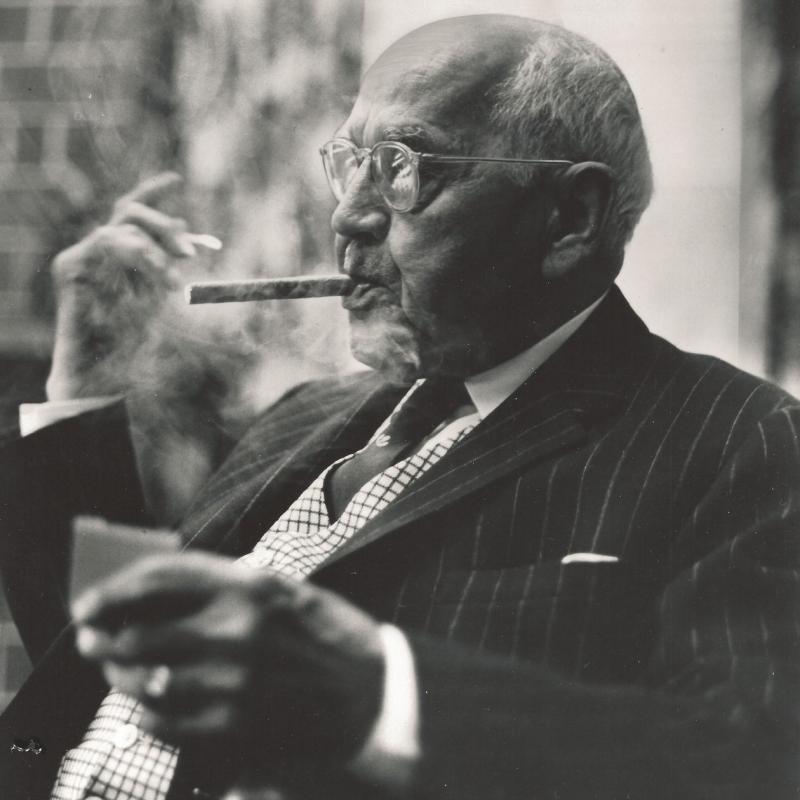'Pappyland' Review: Distilled, My Heart
By: Rien Fertel (WSJ)



When it came time to bid farewell to my friend Jenn, who left Louisiana in August to resettle in New York, I pillaged the dusty back corners of my liquor shelves for the bottle of Pappy Van Winkle’s 15-Year Family Reserve I’d been hoarding—doling it out in dribs and drabs—over the past 15 years. Pappy, if you haven’t had the pleasure, is the most hyped, mythologized, scarcely allocated, exorbitantly priced bourbon of the modern booze era.
“Whiskey is marketed as an antidote to change,” Wright Thompson writes in “Pappyland: A Story of Family, Fine Bourbon, and the Things That Last,” his deep dive into Van Winkledom.
Bourbon is inherently nostalgic. Consider those age-stamped bottles, reminders of time’s brisk slippage and our own brief lives. Ponder their brand names: Ancient Age, Early Times, Old Grand-Dad, Old Crow. In sharing a drink to say goodbye to my dear friend, only whiskey—this whiskey—would do.
“Pappyland” reads as a dramatic three-act tale, tracing the rise, fall and redemption of the Van Winkle family and fortune through the eyes of the third-generation Kentucky bourbon baron Julian Van Winkle III. Mr. Thompson accompanies, and sometimes begs, Mr. Van Winkle, whom he affectionately calls “Booze Yoda,” to visit the three distilleries that have defined his bourbon birthright, starting with the Stitzel-Weller Distillery on the outskirts of Louisville. There, Julian Van Winkle Sr., affectionately known as “Pappy,” broke ground on his whiskey plant the day after Prohibition’s repeal in 1933. The distillery would open two years later, in true Kentucky fashion, on Derby Day.
At Stitzel-Weller, Pappy popularized the substitution of wheat for rye in the grain mixture—or mash bill in bourbon parlance. (Federal Standard decrees that a bourbon’s mash bill must be at least 51% corn; since the late 18th century, the secondary grain has traditionally been rye.) Old Fitzgerald, Pappy’s flagship brand, was a 100-proof wheated monster that is often touted as among the best bourbons ever distilled. Because the Bluegrass State grows plenty of wheat and corn but little to no rye, Pappy’s bourbon obstinately proclaimed its Kentuckian roots like few other brands. “Each bottle of Old Fitz,” Mr. Thompson writes, “carried with it the God Spark of home.”
Measured in bourbon years, Pappy’s reign was short lived. A year before passing away in 1965, he handed the business to his son, Julian Jr., who immediately watered down the Old Fitz proofage to 86.8 to cut costs. The bourbon industry teetered throughout the 1960s—the young and hip followed James Bond’s lead and sipped vodka—and in 1972 Van Winkle Jr. sold the Stitzel–Weller distillery to a global liquor conglomerate. (It is now a tourist mecca for Bulleit Bourbon.) Today, bottles of Pappy-crafted Old Fitzgerald sell for as much as $15,000.
Julian Van Winkle III inherited the family business in 1981 and admits to chasing his grandfather’s legacy ever since. For two decades he brewed bourbon in a ramshackle distillery deep in Kentucky’s hinterlands. It took him several years before slapping the now iconic image of Pappy on his bottles—the old man in repose, cigar in mouth, his right hand raised as if beckoning bourbon aficionados to take a sip—but once he did, thanks to some transcendent reviews, demand skyrocketed. Pappy Van Winkle’s Family Reserve ushered in the new century’s bourbon craze, or what Mr. Van Winkle dismisses as “the cult bourbon s—”: Sotheby’s Pappy auctions, counterfeit Pappy scams and even a $100,000 whiskey heist known as Pappygate.
The Van Winkles themselves are not immune to bourbon fanaticism. Mr. Van Winkle’s son, Preston, who is being groomed as the family’s fourth-generation distiller, owns a secret storage facility filled with unopened bottles of Old Fitz purchased on the secondhand market. While a new generation of bartenders disdain serving Pappy the Van Winkles’ preferred way—on the rocks with a twist, not neat as most so-called purists would presume—the younger Mr. Van Winkle comes armed with a crafty retort to such snobbery. “Well, sir, that sure is disappointing, given that’s how my grandfather and father taught me to drink it, and my family made the stuff after all,” he says, before delivering the knockout blow. “Hi, I’m Preston Van Winkle.”
Writing about American whiskey can be tricky. Too often the nostalgia skews toward neo-antebellum notions of moonlight, magnolias and Southern gentility sipping mint juleps. Mr. Thompson squashes these impulses when he writes of bourbon’s present-day power to conjure a “past that might not be true but sure seems better than whatever hell of a present we’re living in.” (Though I do wish he had disentangled the Van Winkles’s relationship with Rebel Yell, their former bourbon brand still made and marketed under that unfortunate name by the Luxco spirits conglomerate.)
“Pappyland” is not only for fine bourbon aficionados. A celebrated sportswriter, Mr. Thompson brings to this authorized biography the same immersive and often personal perspective that make his profiles of athletes must-reads, whether or not you’re a sports fan. In between demystifying the Pappy mythos, Mr. Thompson unravels the complicated familial relationships within the Van Winkle clan while meditating on the meaning of his own family: welcoming the birth of his baby daughter and, particularly, mourning the loss of his beloved father, whom the author’s many fans will remember from past essays. At its core, this is a book about loving, lovingly written; about fatherhood and friendship, the South and its favorite drink and, as Mr. Thompson writes, “the great communal joy of being alive.” Bourbon is for sharing, and so is “Pappyland.”




